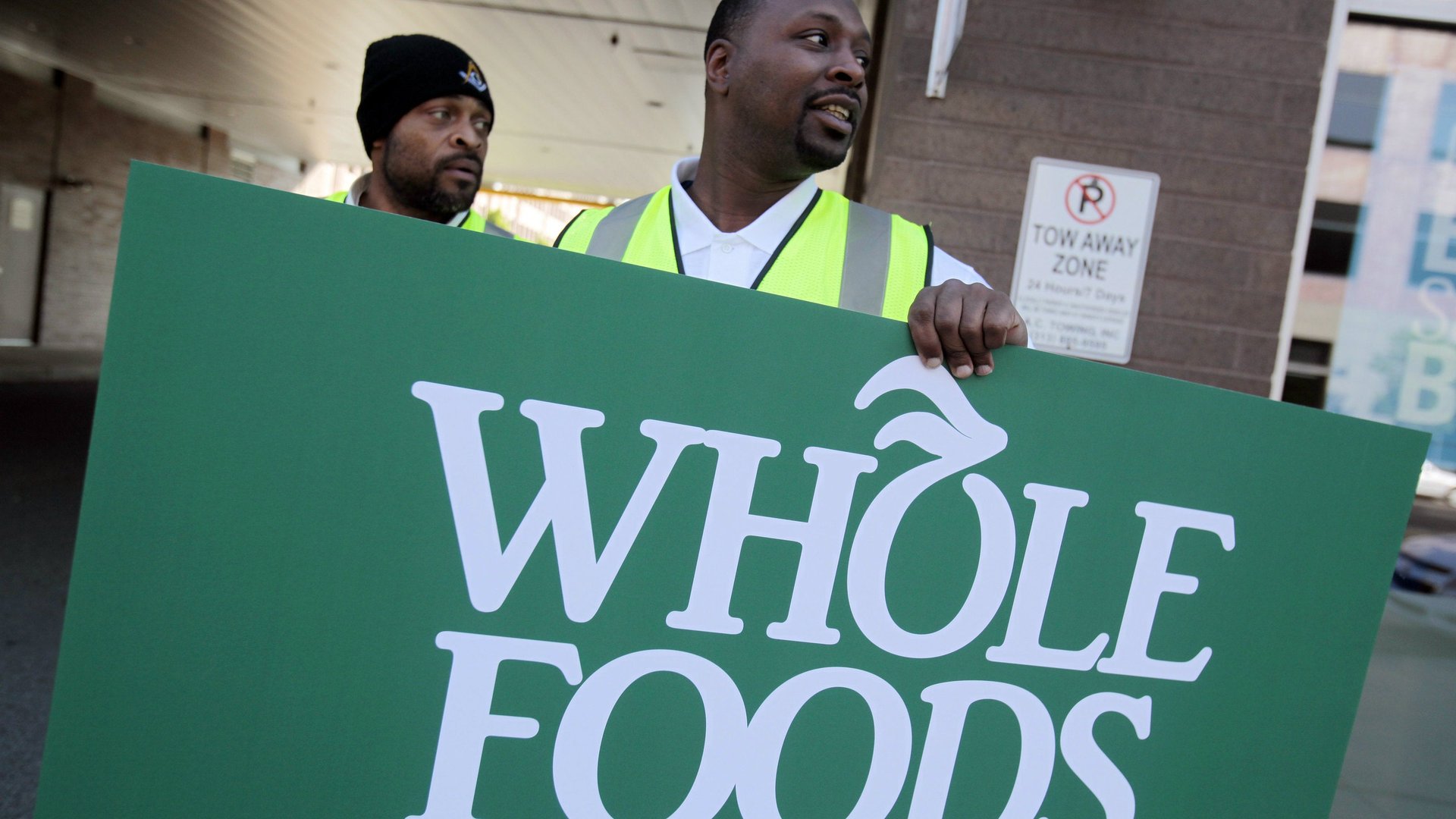When Big Food buys your favorite organic yogurt brand, who wins?
Whole Foods is straight-up delicious, no question. But I rarely shop there, partly because it’s expensive (a 4.2 oz. jar of raw Manuka honey from New Zealand costs $31.99), and partly because it makes me feel guilty.


Whole Foods is straight-up delicious, no question. But I rarely shop there, partly because it’s expensive (a 4.2 oz. jar of raw Manuka honey from New Zealand costs $31.99), and partly because it makes me feel guilty.
Wait. Isn’t the culinary Mecca of sustainability and fair trade supposed to make you feel the opposite—more like a virtuous citizen helping to support health, farmers, and the planet? Shouldn’t that uneasy feeling of astronomically-priced groceries be leavened by the occasional bargain on hummus, canned artichoke hearts, and Kashi GoLean Crisp!?
Whole Foods isn’t giving investors a totally satisfying feeling, either, despite helping to spawn one of the biggest shifts in the food industry, which highlights a major question: As industrial conglomerates spend billions of dollars gobbling up an increasing share of “natural” makers of everything from yogurt to craft beer to pasta—niche brands rooted in the “sustainability” ethos that is Whole Foods’ raison d’etre—what do the giants gain financially?
The answer, not surprisingly, is complicated. A recent Harvard Business School study claims to be the first to show that “doing good” (here, selling sustainable foods) does indeed make for “doing well” (making money)—but only if you do it in the right way. While the study doesn’t specifically address the food industry, its design and findings are applicable, given that it deals with common, cross-industry issues.
Investors care first and foremost about revenues, net profits, and share price—quantitative results that don’t appear to incorporate the fuzziness of “sustainability.” That trendy buzzword knots environmental, social, and corporate governance issues into a single, nebulous ball. (One exception to the ambiguity: financial reporting and disclosure, a commonly-accepted subset of sustainability. A company whose stock tanks because of distorted or falsified financial figures has intrinsically screwed up that piece of the puzzle.)
Also called “corporate social responsibility,” sustainability is a kitchen sink of corporate philanthropy, carbon emissions, labor-safety, diversity training, waste management, human rights, and consumer satisfaction. And executive compensation, supply-chain management, shareholder rights, transparency, reputation, and community involvement. And data security, fair trade, bribery, bio-diversity, and corruption. Whatever it’s called, “There is a discernible trend in the business world of a broader and more inclusive view of value creation to incorporate social and environmental dimensions alongside the economic,” James Austin, a retired business professor from Harvard Business School, tells Quartz.
The key, the Harvard paper argues, lies in whether or not companies cut through the dizzying array of sustainability issues to focus on the big picture—in general, anything affecting net income by at least 5%. Companies with high performance on both the big picture and more fluffy, sustainability issues add an average 1.96% to their stock prices relative to their peers. Not bad. But those that focus on the substance and ignore the fluff do the best of all, adding 6.01%.
Companies that score low in both categories lose on average 2.9% of their stock price. And those that excel at the fluff but do lousy on the substance gain just 0.6%.
Here’s the working paper. Prior research on whether adherence to sustainability issues boosts shareholder value is split: either there’s no correlation, or there is but it can’t concretely be tied to shareholder value.
Big Food’s buying frenzy of sustainable brands marks one of the biggest structural shifts to the industry since the advent of frozen foods after World War II. Investment bank Capstone Partners, which charts recent deals here, tracked 460 deals last year for organic producers of food, vitamins, and nutritional supplements, the second-highest since it began tracking in 2002.
None of which really explains Whole Foods’s stock price, however. One possibility is that the stock price bump from the store’s attempt to do good while making money is outweighed by the expansion of mainstream retailers like Costco and Wal-Mart, who are also expanding into organic and “natural” foods at cheaper prices.
Big Food companies like Unilever and Con-Agra are likely to continue snapping up sustainable brands as those brands become trendier. How that will effect everyone’s bottom line may depend on just how committed to sustainability the behemoths really want to be.